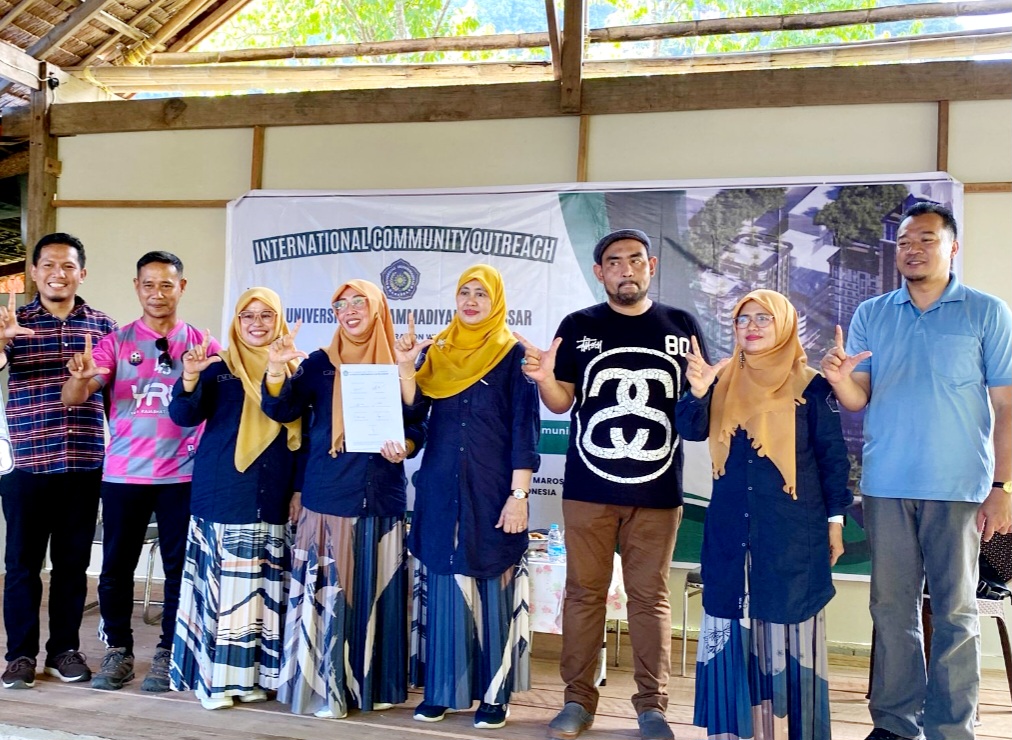As global environmental challenges intensify, collaborative efforts between academic institutions across borders are becoming increasingly essential. One such initiative has emerged through the international collaboration in environmental literacy between Universitas Muhammadiyah Makassar (Unismuh) in Indonesia and Yala Rajabhat University in Thailand. Through a joint community service program focused on environmental awareness and agricultural innovation, the two universities aim to foster sustainable practices and empower local communities in both nations.
The initiative, which took place in Yala Province, Southern Thailand, is part of a growing movement in Southeast Asia to address environmental issues through education, community engagement, and knowledge-sharing. This article explores the details of the collaboration, its objectives, and the long-term impacts on environmental literacy and agricultural innovation.
The Significance of Environmental Literacy in Southeast Asia
Environmental literacy—the ability to understand, analyze, and act upon environmental issues—is a crucial component in fostering sustainable societies. In many parts of Southeast Asia, communities are directly affected by issues such as deforestation, soil degradation, flooding, and changing weather patterns due to climate change.
Educational institutions play a pivotal role in promoting environmental literacy among both youth and adults. By engaging local communities through research-based outreach and participatory workshops, universities can bridge the gap between science and society.
This is precisely the goal of the international collaboration in environmental literacy between Unismuh and Yala Rajabhat University. The joint initiative included activities such as:
- Environmental awareness seminars for students and local farmers
- Interactive discussions on waste management and pollution control
- Field visits to observe sustainable agricultural practices
- Sharing of educational materials and teaching methodologies
These efforts are vital for building long-term community resilience and encouraging behavioral changes at the grassroots level.
Fostering Agricultural Innovation through Knowledge Exchange
Beyond environmental education, the collaboration focused heavily on agricultural innovation—a key area for both Indonesian and Thai rural economies. Farmers in both countries face similar challenges: declining productivity, limited access to technology, and the impact of extreme weather events on crop yields.
Through this collaboration, Unismuh and Yala Rajabhat University facilitated knowledge-sharing sessions that emphasized:
- Organic farming techniques
- Eco-friendly pest control solutions
- Use of local bio-resources for fertilizer production
- Smart farming technologies using basic digital tools
The participating students and faculty members had the opportunity to engage directly with Thai farmers, observing traditional methods while introducing innovative approaches that had been successful in Indonesia. This two-way exchange created a dynamic learning environment for everyone involved.
In addition, local community members were invited to co-create solutions, ensuring that the proposed innovations were contextually relevant and culturally appropriate. Such community-based agricultural innovation strengthens both the academic and practical dimensions of sustainability.
Strengthening Academic and Cultural Ties Between Indonesia and Thailand
One of the key outcomes of this international collaboration in environmental literacy was the strengthening of academic and cultural bonds between the two participating universities. While the project had a clear scientific and social mission, it also provided space for meaningful intercultural dialogue.
Students from Unismuh were exposed to Thai language, traditions, and local wisdom, while Thai participants learned about Indonesia’s environmental and agricultural challenges. This exchange helped foster mutual respect and understanding—critical elements in building long-lasting partnerships.
Moreover, the collaboration is aligned with the ASEAN spirit of cross-border educational cooperation. As regional integration progresses, universities are expected to play a more proactive role in shaping future leaders who are environmentally conscious and globally minded.
Long-Term Impact and Future Plans
While the program lasted only a few days, its potential impact is long-term. Both Unismuh and Yala Rajabhat University have expressed intentions to expand this collaboration into a multi-year initiative involving:
- Joint research on environmental and agricultural sustainability
- Student and faculty exchange programs
- Co-publication of case studies and teaching materials
- Regional conferences on environmental literacy and rural innovation
This initiative has already inspired several Indonesian students to pursue research on climate-resilient farming practices in Southern Thailand, while Thai students are looking at Unismuh’s community engagement model as a case study.
In the long term, programs like this can serve as blueprints for international collaboration in environmental literacy, demonstrating how academic partnerships can directly contribute to the well-being of rural communities.
Keywords in Action – Why They Matter
This article has been structured to include key SEO phrases that are highly relevant for search engines and human readers alike. Here’s how the keywords fit into the broader narrative:
- International collaboration in environmental literacy – the central theme of the article, describing the joint efforts between Unismuh and Yala Rajabhat University.
- Agricultural innovation – one of the main program components, promoting sustainable farming practices.
- Community empowerment – the outcome of involving local stakeholders in education and solution-building.
- Environmental education – a broader term that includes both formal and informal learning about the environment.
- Sustainable farming – a specific topic within agricultural innovation, focusing on eco-friendly techniques.
These keywords not only improve SEO performance but also align with the real-world impact of the project, ensuring that the article remains informative and authentic.
Conclusion
The collaboration between Unismuh and Yala Rajabhat University is more than just an academic exchange; it is a practical and deeply human effort to build sustainable futures through environmental literacy and agricultural innovation. By combining education, community service, and cultural exchange, the program serves as a model for international cooperation that is both impactful and inclusive.
As global challenges like climate change, food insecurity, and environmental degradation grow more complex, initiatives like this one offer hope—and a clear path forward. Through shared knowledge, mutual respect, and a commitment to sustainability, academic institutions can lead the charge in transforming rural communities and protecting the planet for future generations.
Read More






 Friday, 27-02-26
Friday, 27-02-26







